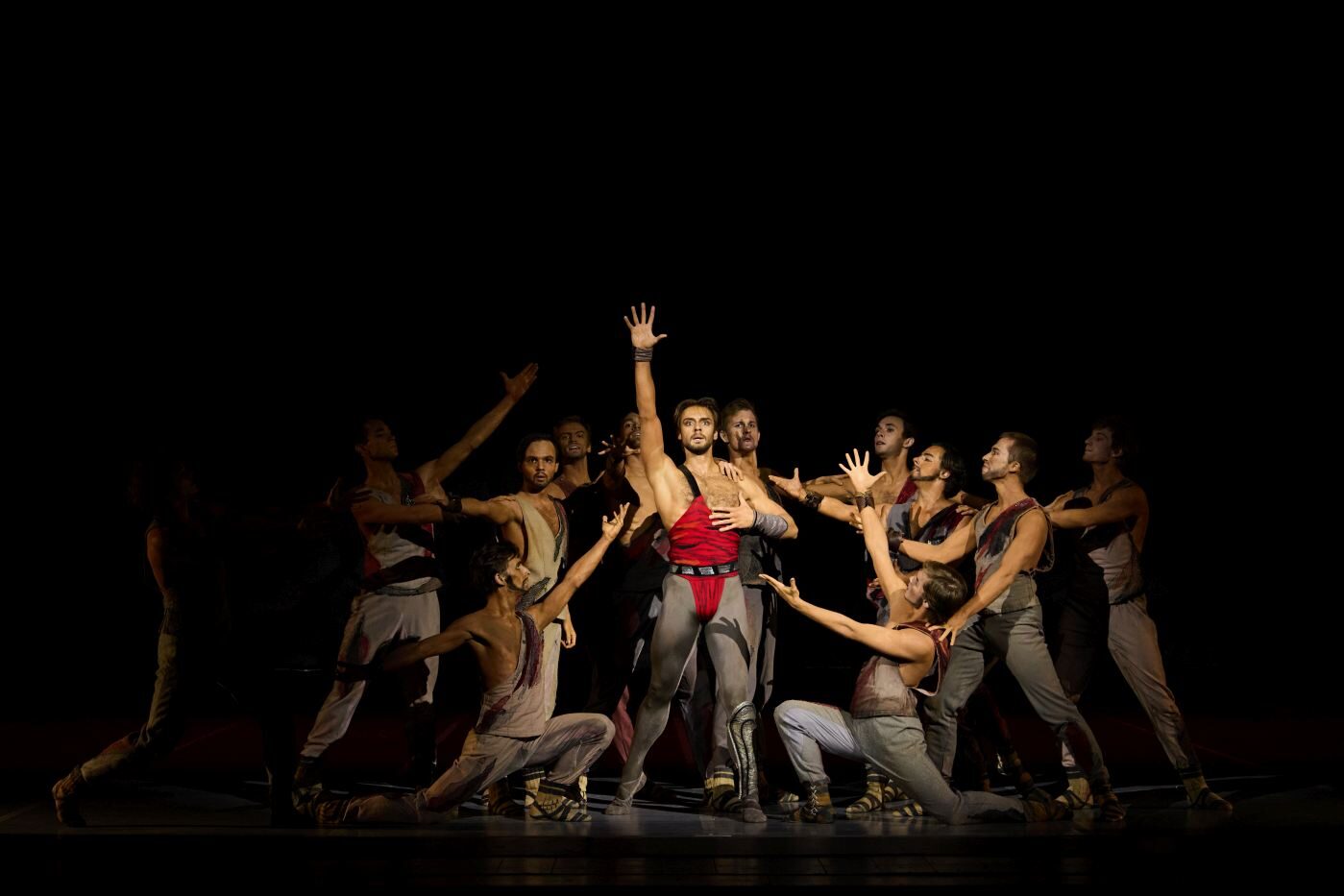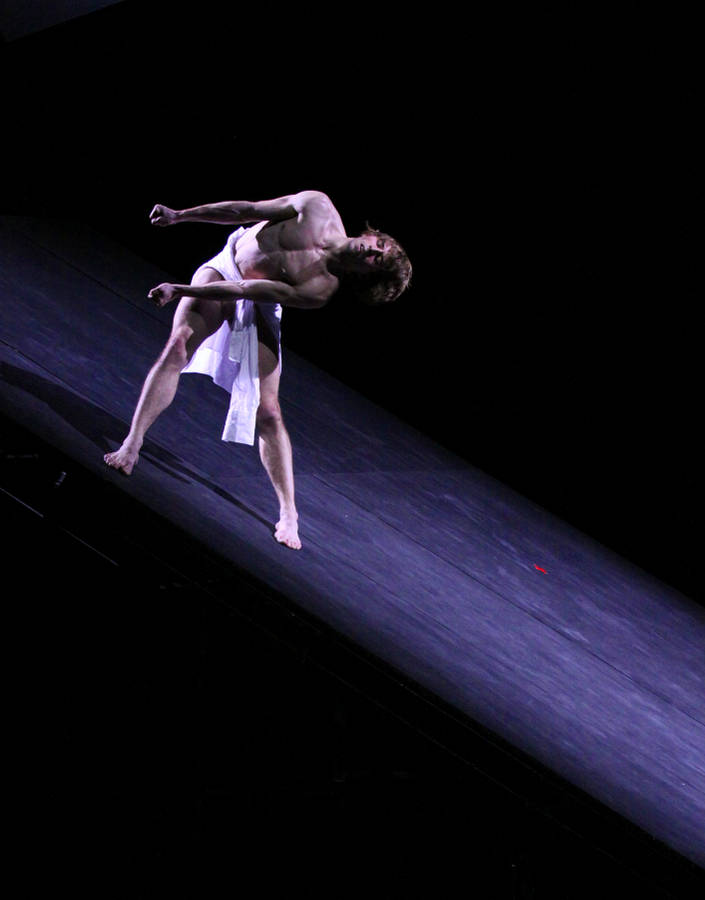Safety and Comfort are Rare
“Winterreise” (“Winter Journey”)
Hamburg Ballet – John Neumeier
Hamburg State Opera
Hamburg, Germany
March 29, 2015
by Ilona Landgraf
Copyright © 2015 by Ilona Landgraf
 Reviving John Neumeier’s “Winterreise” in early spring seems odd programming. The ballet is based on Franz Schubert’s somber song cycle of 1828 as rendered musically by German conductor and composer Hans Zender. The twenty-four songs’ verses seem simple at first glance, almost folk-like, but plumb deeply into existential states of mind. Center stage are a young wayfarer’s experiences – encounters he has had with others along his life’s passionate path. Even if spring moods must be left aside “Winterreise” was a good opener the week before Easter.
Reviving John Neumeier’s “Winterreise” in early spring seems odd programming. The ballet is based on Franz Schubert’s somber song cycle of 1828 as rendered musically by German conductor and composer Hans Zender. The twenty-four songs’ verses seem simple at first glance, almost folk-like, but plumb deeply into existential states of mind. Center stage are a young wayfarer’s experiences – encounters he has had with others along his life’s passionate path. Even if spring moods must be left aside “Winterreise” was a good opener the week before Easter.
Schubert had based “Winterreise” on poems by Wilhelm Müller (1794 – 1827), and he set them without informing the poet. Some attribute Müller’s death, which was untimely, to complete exhaustion; others speculate that he committed suicide due to unbearable depression. His verses exude gloom. He died in September and Schubert began composing in October. The two never met. Allegedly, Schubert secluded himself while composing. Eventually, when visiting friends he seemed to be unhinged. Zender suspects that the first concert performances of the piece must have caused fright rather than delight. Schubert died only one year later, in 1828. He was just thirty-one years old. (more…)

